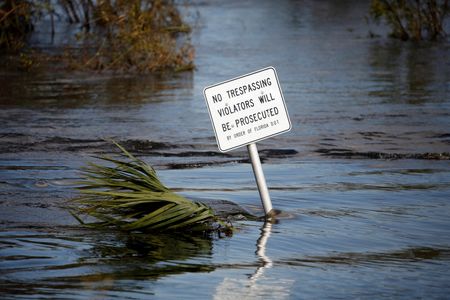 1
1 1
1


WASHINGTON (Reuters) – The U.S. Treasury on Tuesday said it was proposing a new rule to collect data on climate-related risks from property and casualty insurers, one of the first concrete actions in a new push to beef up financial regulation to help fight global warming.
The Treasury’s Federal Insurance Office said in a Federal Register notice that it was seeking public comment on the proposal, under which it would collect current and historical underwriting data on homeowners’ insurance.
The zip-code level data would provide the insurance office with “consistent, granular, and comparable insurance data needed to help assess the potential for major disruptions of private insurance coverage in regions of the country that are particularly vulnerable to the impacts of climate change.”
The move comes less than three weeks after Hurricane Ian devastated Fort Myers Beach and other parts of Florida’s southwest coast, causing billions of dollars in both uninsured and insured damage and pushing some insurers to forecast financial losses.
U.S. Treasury Secretary Janet Yellen has pressed U.S. financial regulators to make assessment of climate change risks a normal part of their everyday work, including a demand that companies increase disclosures of such risks to investors.
Treasury said the proposed data collection rule would help the Federal Insurance Office to assess both the availability of insurance for millions of Americans as well as the affordability of such insurance.
“Today’s action by the Federal Insurance Office is an important step in determining how Americans are being affected by the increasing costs of climate change,” Yellen said in a statement. “The recent impacts in Florida from Hurricane Ian demonstrate the critical nature of this work and the need for an increased understanding of insurance market vulnerabilities in the United States.”
(Reporting by David Lawder; Editing by Chizu Nomiyama)